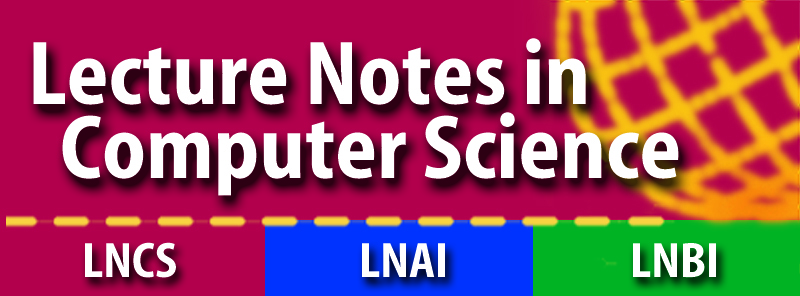Mexican Conference on Pattern Recognition
Mexico City, Mexico
June 23 - 26, 2021



Keynote Speakers
Lei Zhang

Lei Zhang is a Principal Researcher and Research Manager of the computer vision research group in Microsoft Cloud & AI, leading a team working on large-scale visual recognition. The team has made a significant impact to Microsoft Cognitive Services, including image tagging, object detection, entity recognition, and image captioning. Prior to this, he has worked with Microsoft Research Asia for 12 years as a Senior Researcher and later with Bing Multimedia Search for 2 years as a Principal Engineering Manager. He is an IEEE Fellow and has published 150+ papers and holds 50+ U.S. patents for his innovation in related fields.
Lecture: Aligned representation learning for vision-language understanding
Vision-language pre-training (VLP) has proved effective for a wide range of vision-language tasks for its great capability of learning transferrable representations from large-scale multimodality data. The fundamental problem in this space is to learn multimodality-aligned representations from large-scale but noisy data. In this talk, I will introduce a series of research works towards this goal, including how to setup the pretraining tasks, how to use object detection results as anchor points to bridge the modality gap, how to leverage unpaired data to learn visual vocabulary for better generalization, and how to improve visual representation by object detection pretraining. I will present extensive image captioning examples and analysis to provide insights on the effectiveness of the learned VL-aligned representation.
Alessandro Vinciarelli

Alessandro Vinciarelli is with the University of Glasgow where he is Full Professor at the School of Computing Science and Associate Academic at the Institute of Neuroscience and Psychology. His main research interest is Social Signal Processing, the domain aimed at modelling analysis and synthesis of nonverbal behaviour in social interactions. Overall, Alessandro has published more than 150 works, including one authored book, and 43 journal papers. He is currently Director and Principal Investigator of the UKRI Centre for Doctoral Training in Socially Intelligent Artificial Agents and, in the past, he has been Coordinator of the Network of Excellence in Social Signal Processing. Furthermore, he is or has been PI and co-PI of more than 15 national and international research projects. Alessandro has been general chair of two conferences (IEEE International Conference on Social Computing in 2012, ACM International Conference on Multimodal Interactions in 2017) and of more than 25 international events. Last, but not least, Alessandro is co-founder of Klewel, a knowledge management company recognized with national and international awards.
Lecture: An introduction to Social AI
In the last 20 years, the AI community has made major efforts aimed at making machines socially intelligent, i.e., capable to interact with people like people do with one another. The key-idea underlying these efforts, encompassed by the collective name of Social AI, is that social and psychological phenomena leave physical, machine detectable traces in peoples’ behaviour, at both verbal (what they say) and nonverbal (how they say it) level. This talk is an introduction to the main principles and problems that Social AI researchers address when developing technologies for the automatic analysis of social and psychological phenomena such as emotions, personality, conflict, mental health issues, etc. In particular, the talk will try to highlight the differences between using AI to address such problems and the others.
Julian Fierrez

Prof. Julian Fierrez, Universidad Autonoma de Madrid, SPAIN. Julian Fierrez received the MSc and the PhD degrees in telecommunications engineering from Universidad Politecnica de Madrid, Spain, in 2001 and 2006, respectively. Since 2004 he has been at Universidad Autonoma de Madrid, where he is Associate Professor since 2010. From 2007 to 2009 he was a visiting researcher at Michigan State University in the USA under a Marie Curie fellowship. His research is on signal and image processing, AI fundamentals and applications, HCI, forensics, and biometrics for security and human behavior analysis. He is actively involved in large EU projects in these topics (e.g., BIOSECURE, TABULA RASA and BEAT in the past; now IDEA-FAST, PRIMA and TRESPASS-ETN). Since 2016 he has been Associate Editor for Elsevier's Information Fusion and IEEE Trans. on Information Forensics and Security, and since 2018 also for IEEE Trans. on Image Processing. He has been General Chair of the IAPR Iberoamerican Congress on Pattern Recognition (CIARP 2018) and the Iberian Conference on Pattern Recognition and Image Analysis (IbPRIA 2019). Since 2020 he is a member of the ELLIS Society. Prof. Fierrez has received best papers awards at AVBPA, ICB, IJCB, ICPR, ICPRS, and Pattern Recognition Letters. He is also recipient of several world-class research distinctions, including: EBF European Biometric Industry Award 2006, EURASIP Best PhD Award 2012, Medal in the Young Researcher Awards 2015 by the Spanish Royal Academy of Engineering, and the Miguel Catalan Award to the Best Researcher under 40 in the Community of Madrid in the general area of Science and Technology. In 2017 he was also awarded the IAPR Young Biometrics Investigator Award, given to a single researcher worldwide every two years under the age of 40, whose research work has had a major impact in biometrics.
Lecture: Biases in Machine Learning and Responsible Artificial Intelligence
In the last few years, we are witnessing a growing interest in the Artificial Intelligence research community in studying bias effects when machine learning methods are applied on large amounts of data. These bias effects can stem from the data itself or from the learning process, which nowadays is clearly dominated by deep learning methods that most of the time are quite opaque. When those learning processes are related to AI applications dealing with personal information, or whose application affects people’s lives, then biases can result in unfair AI-based automated decision-making processes, very harmful in terms of undesired discrimination among population groups. This keynote will discuss the current state of the topic with special emphasis in AI applications involving face biometrics. Recent methods and approaches to reduce undesired discrimination towards fair biometrics will be also discussed.